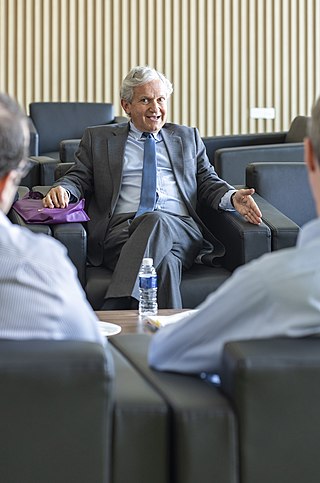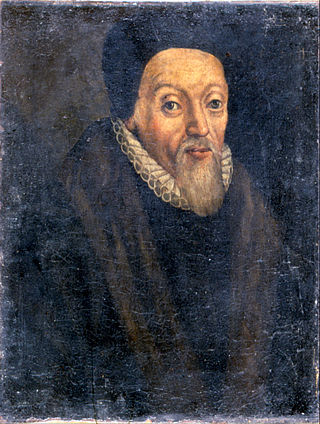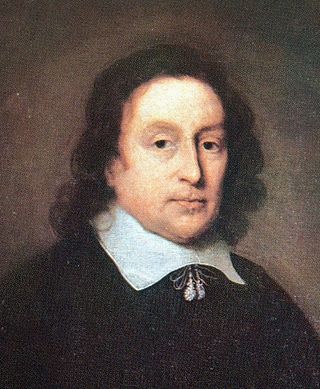Related Research Articles

Edward the Confessor was one of the last Anglo-Saxon English kings. Usually considered the last king of the House of Wessex, he ruled from 1042 to 1066.

The Keeper or Master of the Rolls and Records of the Chancery of England, known as the Master of the Rolls, is the President of the Civil Division of the Court of Appeal of England and Wales and Head of Civil Justice. As a judge, the Master of the Rolls is second in seniority in England and Wales only to the Lord Chief Justice. The position dates from at least 1286, although it is believed that the office probably existed earlier than that.

Alexander Nowell was an Anglican priest and theologian. He served as Dean of St Paul's during much of Elizabeth I's reign, and is now remembered for his catechisms.

Richard Fleming, Bishop of Lincoln and founder of Lincoln College, Oxford, was born at Crofton in Yorkshire.

The House of Plantagenet was a royal house which originated from the lands of Anjou in France. The family held the English throne from 1154 to 1485, when Richard III died in battle.
The Master of the Jewel Office was a position in the Royal Households of England, the Kingdom of Great Britain and the United Kingdom. The office holder was responsible for running the Jewel House, which houses the Crown Jewels. This role has, at various points in history, been called Master or Treasurer of the Jewel House, Master or Keeper of the Crown Jewels, Master or Keeper of the Regalia, and Keeper of the Jewel House. In 1967, the role was combined with Resident Governor of the Tower of London.
Robert Stitchill was a medieval Bishop of Durham in England.
Roger Weseham was an English medieval Bishop of Coventry and Lichfield.
Robert Warelwast was a medieval Bishop of Exeter.
Henry Marshal was a medieval Bishop of Exeter.

Robert Morton was an English priest and Bishop of Worcester.

John Clifford, 7th Baron de Clifford, also known as John, Lord Clifford, 7th Lord of the Honor of Skipton, KG, was an English peer. He was killed at the siege of Meaux, France.
John Gunthorpe was an English administrator, Clerk of the Parliament, Keeper of the Privy Seal and Dean of Wells.
Matthew Nicholas (1594–1661) was an English Dean of St. Paul's Cathedral, London.
The English College, Lisbon was a Roman Catholic seminary that existed from the 17th century to the 20th century.
George Gresley Perry (1820–1897) was an English churchman and academic, known as a church historian and Archdeacon of Stow.
Robert Waterton was a trusted servant of the House of Lancaster under three monarchs, Henry IV, Henry V, and Henry VI. As Constable of Pontefract Castle, he had custody of Richard II after that king was deposed.

Michael Honywood D.D. was an English churchman, Dean of Lincoln from 1660. Honywood was a bibliophile and he founded and funded the Lincoln Cathedral Library.
References
- Clough, Cecil H. (2004). "Flemming, Robert (1416–1483)". Oxford Dictionary of National Biography (online ed.). Oxford University Press. doi:10.1093/ref:odnb/9714.(Subscription or UK public library membership required.)
- Swanson, R.N. (2004). "Flemming, Richard (d. 1431)". Oxford Dictionary of National Biography (online ed.). Oxford University Press. doi:10.1093/ref:odnb/9709.(Subscription or UK public library membership required.)
- Whitehead, J.R. (2004). "Waterton, Robert (d.1425)". Oxford Dictionary of National Biography (online ed.). Oxford University Press. doi:10.1093/ref:odnb/54421.(Subscription or UK public library membership required.)
- Attribution
 This article incorporates text from a publication now in the public domain : Perry, George Gresley (1889). "Flemming, Robert". In Stephen, Leslie (ed.). Dictionary of National Biography . Vol. 19. London: Smith, Elder & Co. pp. 288–289.
This article incorporates text from a publication now in the public domain : Perry, George Gresley (1889). "Flemming, Robert". In Stephen, Leslie (ed.). Dictionary of National Biography . Vol. 19. London: Smith, Elder & Co. pp. 288–289.